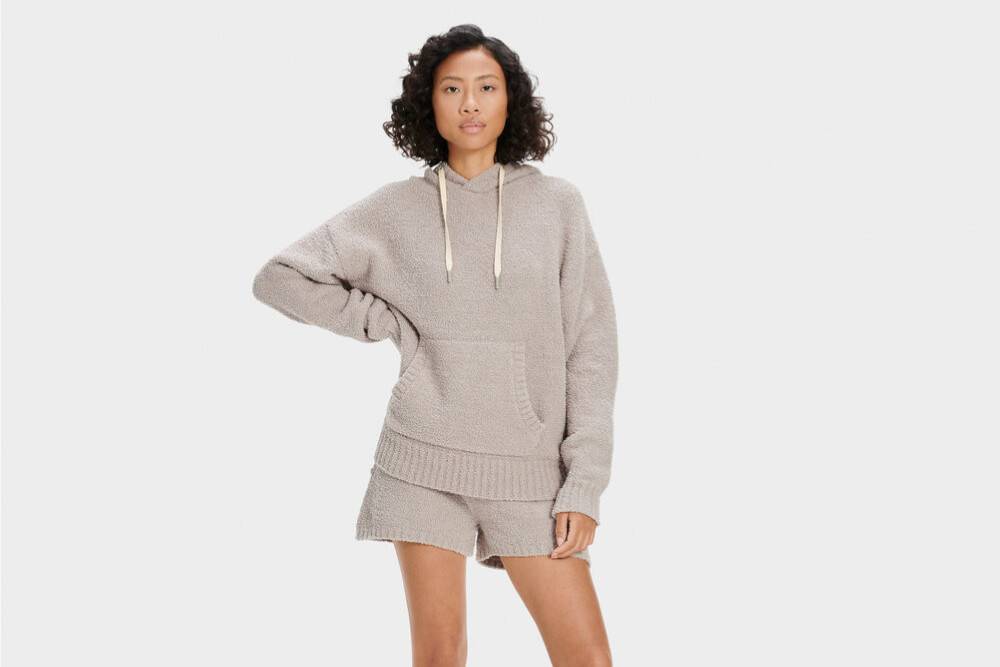
Deckers is an American fashion retailer founded in 1973 in California, United States, by Doug Otto and Karl F. Lopkera. The multinational clothing-retail company creates footwear and fashion for men, women, and children.
Deckers, also known as Deckers Outdoor Corporation and doing business as Deckers Brands, makes clothing, accessories, shoes, and underwear. It owns brands like UGG, Koolaburra, Hoka, Teva, Sanuk, and more.
Deckers operates select department and specialty stores across more than 50 countries where it does business. It has over 3,000 employees globally.
Deckers aims to deliver quality products to its consumers while minimizing the environmental impact of its business footprint. It strives to support local communities and maintain an ethical supply chain.
Deckers has a responsibility to employ socially conscious operations and sustainable business practices. It has committed to an inclusive and equitable work experience and supporting the environment.
The clothing retailer offers a sustainable collection made from natural or recycled materials called Feel Good. It crafts its products with responsible materials on a journey toward a more regenerative world.
Panaprium is independent and reader supported. If you buy something through our link, we may earn a commission. If you can, please support us on a monthly basis. It takes less than a minute to set up, and you will be making a big impact every single month. Thank you!
Sustainability Rating: 5/10
Rating FAQ
Category: Clothing, accessories, shoes
For: Women, men, children
Type: Basics, dresses, knitwear, activewear, underwear, loungewear, outerwear, nightwear, boots, flats, sandals, sneakers, heels
Style: Casual
Quality: Medium
Prices: $$
Sizes: 2XS-3XL, 0-16 (US), 2-18 (UK), 32-46 (EU), 4-20 (AU), plus
Fabrics: Cotton, linen, hemp, ramie, jute, lyocell, modal, viscose, acetate, polyester, nylon, spandex, polyethylene, polypropylene, acrylic, neoprene, polyurethane, rubber, leather, wool, down
100% Organic: No
100% Vegan: No
Ethical & Fair: No
Recycling: Yes
Producing countries: Cambodia, China, Philippines, Indonesia, Dominican Republic, Malaysia, Vietnam
Certifications: GOTS, GRS, RCS, FSC, LWG, RDS, RWS
Sustainability Practices
Deckers takes wide-ranging measures to protect biodiversity, reduce its consumption of water, energy, and other resources, avoid waste, and combat climate change.
It wants to be better and more efficient by looking at every aspect of its value chain to ensure the healthy functioning of our planet. However, the majority of its business remains detrimental to the environment.
Deckers only uses a tiny proportion of organic materials such as organic cotton, hemp, and linen, or recycled materials such as recycled cotton, recycled polyester, and regenerated nylon.
Only very few of its collections are dedicated to sustainable fashion. Most of the fabrics it uses are either natural without relevant certifications, such as regular cotton or linen, or synthetic petroleum-based fibers such as polyester, nylon, acrylic, and more.
Deckers also uses a small proportion of semi-synthetic fibers or regenerated cellulosic fabrics such as Tencel lyocell, modal, acetate, and viscose.
Tencel is an eco-friendly fiber made with wood pulp from certified sustainable forests. But only a tiny proportion of the materials used by Deckers are environmentally friendly and sustainable.
Deckers publishes a list of all its manufacturers but not its processing facilities on its corporate website. It wants to ensure that its ethical supply chain program is best in class.
The 2022 Fashion Transparency Index gave Deckers a score of 56% based on how much the group discloses about its social and environmental policies, practices, and impacts.
Deckers manufactures its clothes in many East Asian countries, where human rights and labor law violations happen every day.
The American clothing retailer doesn't show any labor certification standard that would ensure good working conditions, decent living wages, health, safety, and other crucial rights for workers in its supply chain.
Deckers has a code of conduct that applies to all its suppliers and subcontractors based on the regulations set by the International Labor Organization (ILO).
Deckers assesses compliance with its Code of Conduct by informal visits or third-party audits with or without notice. It employs an internal audit team and accredited third party auditors to regularly assess its factories' compliance with its fair labor standards.
Deckers doesn't use exotic animal skin, hair, fur, or angora. But it uses leather, wool, and down feathers to manufacture many of its clothing pieces.
These animal-derived materials are cruel and unethical. They also harm the environment by producing greenhouse gases and waste. More sustainable alternatives exist.
Sustainability Goals
Deckers has committed to reducing its environmental impact across the entire supply chain. It aims to significantly reduce its overall environmental footprint and give back to causes focusing on people and our planet.
Deckers plans to reduce its GHG emissions by 46% in Scope 1 and 2 and 58% in scope 3 (in the Purchased Goods category), by 2030 compared to 2019.
Deckers has also committed to restoring 1,000,000 acres of land by 2025 through its support of a grant for regenerative farming practices.
Deckers plans to have 55% of all materials used in its footwear made from preferred materials by 2027. And 65% of all materials used in its apparel, accessories, and home goods will be made from preferred materials by 2027.
Deckers aims for 100% of cotton fiber used in its footwear made from recycled cotton fibers or sourced from farms that utilize sustainable crop growing practices by 2025.
100% of cotton fiber used in its apparel, accessories, and home goods will be made from recycled cotton fibers or sourced from farms that utilize sustainable crop growing practices by 2025.
Deckers will source 65% of all co-polyester fibers and films in its footwear from post-consumer, post-industrial, or renewable resources by 2030.
And 40% of all co-polyester fibers and films in its apparel, accessories, and home goods will come from post-consumer, post-industrial, or renewable resources by 2027.
Reviews And Experiences With Deckers
Have you had (good) experiences with shopping at or the products of Deckers? Then leave us your rating below.
What We're Up Against
Multinational corporations overproducing cheap products in the poorest countries.
Huge factories with sweatshop-like conditions underpaying workers.
Media conglomerates promoting unethical, unsustainable products.
Bad actors encouraging overconsumption through oblivious behavior.
- - - -
Thankfully, we've got our supporters, including you.
Panaprium is funded by readers like you who want to join us in our mission to make the world entirely sustainable.
If you can, please support us on a monthly basis. It takes less than a minute to set up, and you will be making a big impact every single month. Thank you.






























0 comments